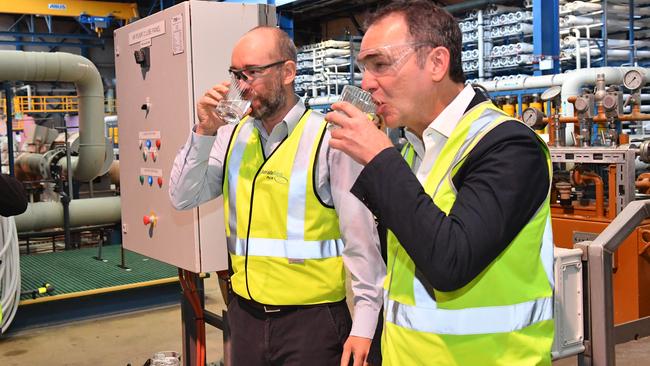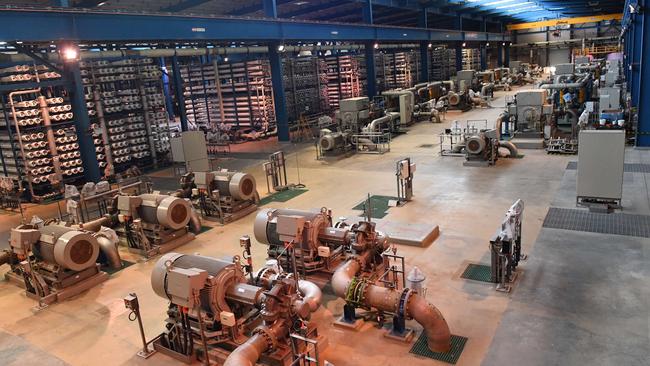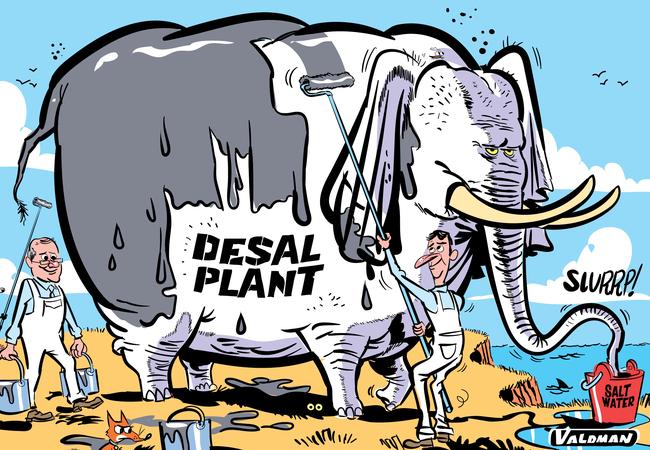South Australia’s mothballed desalination plant just days away from firing to deliver 100 billion litres for national drought rescue
The Premier says the long-dormant desalination plant has been a white elephant too long, but is impressed by the water it’s about to start churning out this week.

SA News
Don't miss out on the headlines from SA News. Followed categories will be added to My News.
- Desal plant to be fired up over summer to help with drought
- SA’s hidden drought: Farmers do it tough while focus is on east
South Australia’s long-dormant desalination plant is expected to seriously crank up for the first time this week, and start producing extra water to help with the national drought.
Premier Steven Marshall toured the Lonsdale plant on Sunday, saying it had been a “white elephant” for too long and he believed the people of SA “want to play their part” in assisting Australia’s farmers through in a crippling dry spell.
He also sampled desalinated water, saying: “I think consumers here in SA will be delighted with the quality”.

The striking of a deal to fire up the desal plant was confirmed on Thursday, as Prime Minister Scott Morrison announced a $1 billion drought package. He also committed to covering the extra expense of producing up to 100 billion litres of water from SA’s desal plant over the next two years.
That bill is expected to be about $100 million, and SA households have been promised their costs won’t rise under the drought bailout deal.
The water will be pumped into SA households, but the equivalent amount of Murray water effectively given back and released to farmers who choose to grow feed and keep hungry livestock alive.

Mr Marshall said: “We are now just a few days away from first water coming out of this desal plant helping our farmers around the country”.
“Later this week, Lonsdale will be fired up to start producing the first water for the 40 gigalitres which will be used by farmers across the Murray Darling Basin to produce fodder to protect our livestock,” he said. “This is great news.
“The taxpayers have paid a lot of money to put this desal plant into place for times of water crisis, and that time is right now. “Quite frankly, it’s been a while elephant for a very long period of time.”
Mr Marshall said final details of national agreements governing operation of the plant needed to be changed before it fully fired up. He said that could also open the door to other uses of the plant, which is currently only used for emergency drinking water.
Mr Marshall indicated desal water could be commercially traded, cutting farmer prices.

